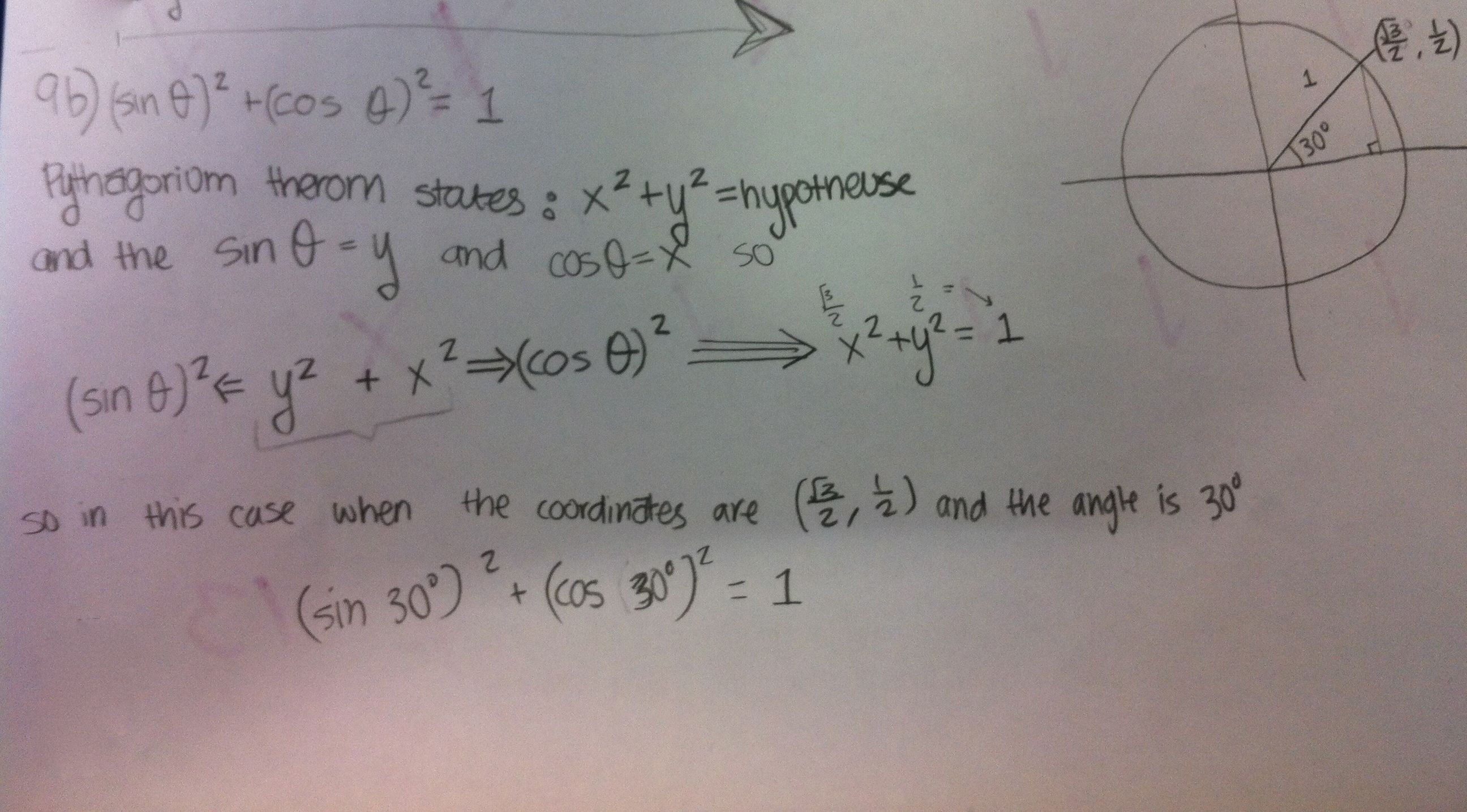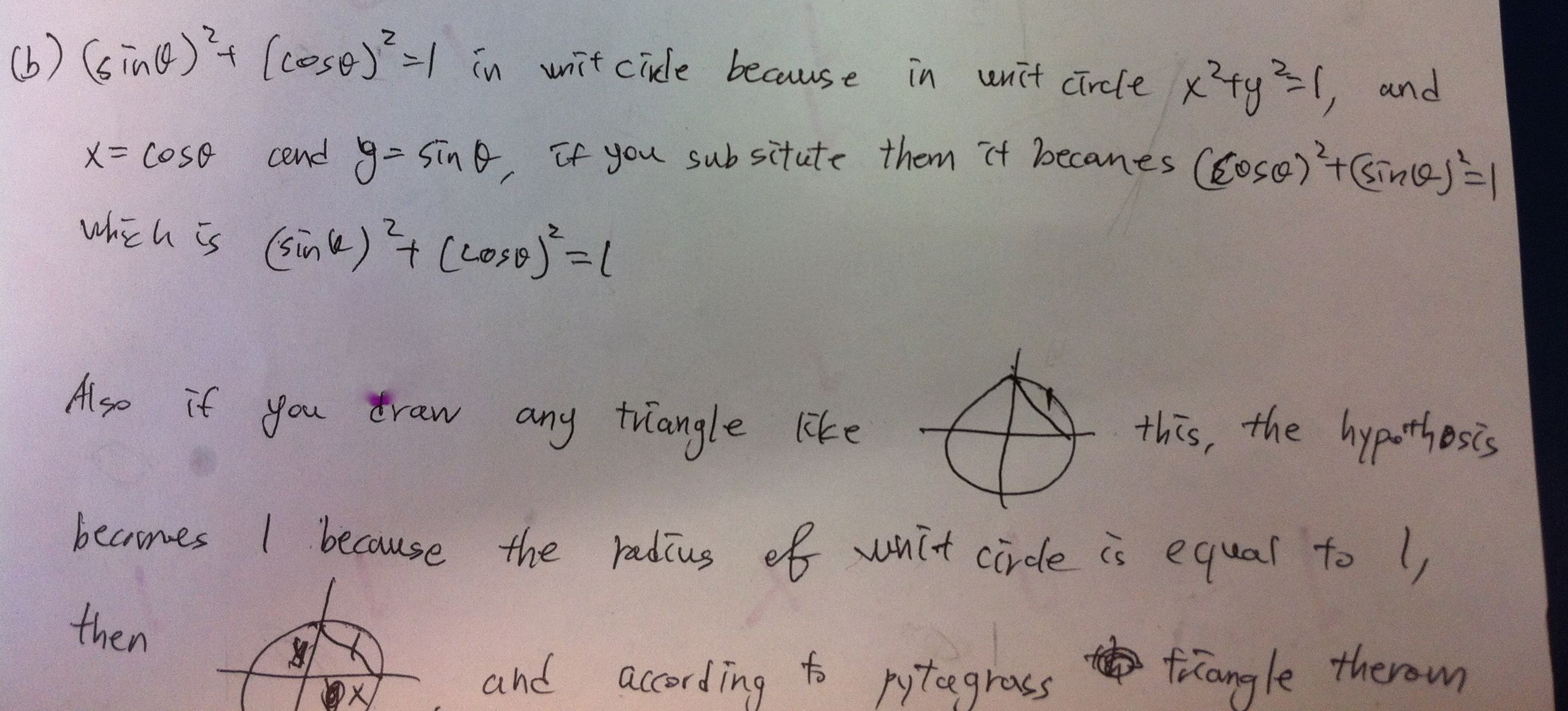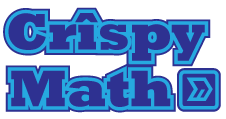A Trig Assessment
/Ever since Daniel started his series on assessment a couple weeks back I have been meaning to post some questions from my own assessments. Here is a one from a quiz we took in Algebra 2 with Trigonometry on Friday.

Proofs are difficult for students in general. What I particularly liked about the second part of this question was that although we had been talking about various trig identities created by the unit circle and the unit circle itself for a few weeks (see the previous blog posts), this important identity hadn't come up. I was saving it for the quiz.
I like giving students questions like this on quizzes because they challenge my students do more than just regurgitate some facts that they have previously memorized. Khan Academy can assess knowledge of basic facts (and simple applications) pretty well. I want my students to be faced with questions where they don't necessarily know what to do, and they might even take a wrong path.
This reminds me of Andrew Wiles' comparison (1) of mathematics to the exploration of a dark mansion
«one goes into the first room, and its dark, completely dark, one stumbles around, bumping into the furniture, and gradually you learn where each piece of furniture is, and finally after 6 months or so you find the light switch, you turn it on and suddenly it’s all illuminated you can see exactly where you are.»
Now, this proof was not Fermat's Last Theorem, but I think it was still challenging. My kids, of course, really hate that I put questions like this on their quizzes and tests at the beginning of the year, but they grow to appreciate them. And boy are they excited when they figure them out. They know, of course, which questions are the ones making them think. Here is a bit of their work.

A second,

These really exceeded my expectations, I was thinking maybe a few of my students would get the question right but it was a much much higher percentage.
(1): If you haven't seen this documentary about the Proof of Fermat's Last Theorem from BBC's Horizon program go watch it –really awesome. I always show it to my kids when I get a chance.

